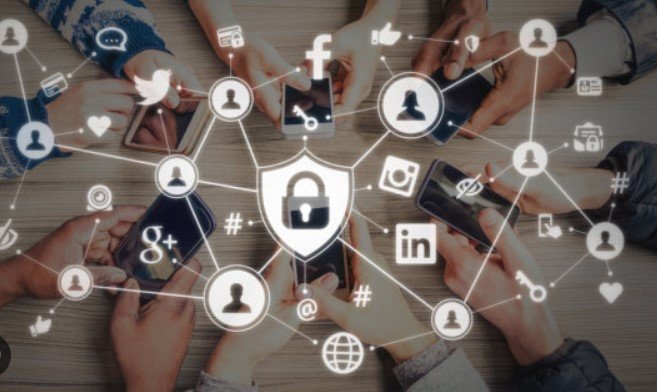Social media platforms have become an integral part of our daily lives, providing us with the ability to connect with friends, share experiences, and discover new content. However, with this convenience comes a growing concern about privacy. As users share more personal information online, the risks of data breaches, identity theft, and unauthorized access to private data continue to increase. In this post, we will explore the privacy concerns in social media, the risks involved, and what you can do to protect yourself.

Italfarad Capacitors
Italfarad specializes in manufacturing high-quality capacitors for various applications. They offer a range of products designed for optimal performance and durability. For more information on online entertainment options and potential rewards, check out casino bonus.
The Value of Your Personal Data
One of the primary reasons privacy concerns have emerged in the social media landscape is the value of personal data. Social media platforms collect vast amounts of information, from your location and interests to your habits and preferences. This data is then used for targeted advertising, which helps companies tailor their marketing efforts. While this may seem harmless, the extensive collection of data raises questions about how this information is stored, shared, and protected. With the right access, malicious actors can exploit this information for fraudulent purposes, making data privacy crucial.
Data Breaches and Hacks
Another significant privacy concern in social media is the risk of data breaches and hacks. Social media platforms are often targeted by cybercriminals who seek to gain unauthorized access to user data. In the past, large-scale data breaches have affected millions of users, exposing personal information such as names, emails, phone numbers, and even passwords. These breaches can lead to identity theft, financial loss, and long-term damage to an individual’s reputation. Even if a platform implements robust security measures, hackers continue to find new ways to exploit vulnerabilities.
Invasive Tracking and Surveillance
Social media platforms often use tracking technologies to monitor user activity both on and off their sites. Through cookies, trackers, and other surveillance tools, these platforms collect data on your browsing habits, location, and even interactions with ads. This tracking can follow you across multiple devices, gathering an extensive profile of your behaviour without your explicit knowledge or consent. While some users may find this invasive, it is also a significant privacy concern as it can be use to manipulate behaviour and push unwanted content.
The Risks of Oversharing
Oversharing is another common issue on social media that can lead to privacy concerns. Many users unknowingly share too much personal information, whether through status updates, photos, or location check-ins. This informati by malicious actors to steal your identity, track your whereabouts, or commit other crimes. Even seemingly innocent posts about daily life can provide a wealth of information that could be exploited. Being mindful of what you share and adjusting privacy settings can help reduce the risks associated with oversharing.
Electrical Solutions and Digital Entertainment
Italfarad.com specializes in manufacturing electrical capacitors for various applications. For those seeking other forms of digital engagement, exploring options like www.kingjohnnie.me can provide a different kind of experience. Whether it’s working with electrical components or exploring online games, diverse activities enrich our lives.
Protecting Your Privacy on Social Media
While privacy concerns are real, there are steps you can take to protect your information and reduce the risks associated with social media. First, be aware of the privacy settings on each platform and ensure they are configure to limit the amount of information you share. Consider adjusting settings to restrict who can view your posts and who can contact you. Additionally, use strong, unique passwords for each account, and enable two-factor authentication for added security. Avoid clicking on suspicious links or downloading unknown files, as these can expose your device to malware and phishing attempts.
Finally, be cautious about the apps and third-party services you connect to your social media accounts. These connections can grant access to your personal data, and in some cases, apps may not be as secure as the social media platform itself. Review and remove any unnecessary or outdated apps that may have access to your accounts.
Discover Fun Beyond the Feed
At times, it’s refreshing to take a break from scrolling and enjoy something different. For those moments of leisure, leroi johnny casino en ligne provides a thrilling escape. Offering a wide array of online games—from classic table games to exciting video slots—this platform delivers entertainment at your fingertips.
Much like Italfarad values user engagement, leroi johnny casino en ligne prioritizes user experience with smooth gameplay and secure access. It’s a perfect companion to your online routine—whether you’re winding down after a long day or simply seeking a bit of digital excitement.
Conclusion
As social media continues to evolve, privacy concerns will likely remain a major issue for users worldwide. While platforms are taking steps to improve security and transparency, it is ultimately up to individuals to take control of their own privacy. By being aware of the risks, adjusting privacy settings, and practicing good online habits, you can protect yourself from the potential dangers of oversharing, tracking, and data breaches. Stay informed and vigilant to ensure that your personal information remains private in the ever-connected world of social media.











